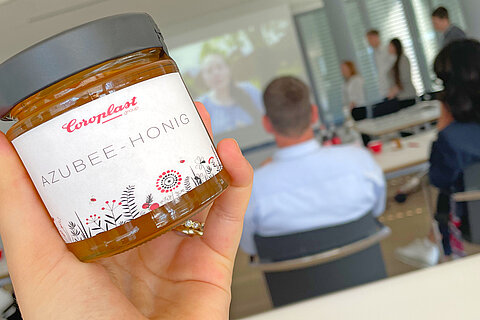Coroplast Global | Insights Gaining practical experience with the trainee pitch
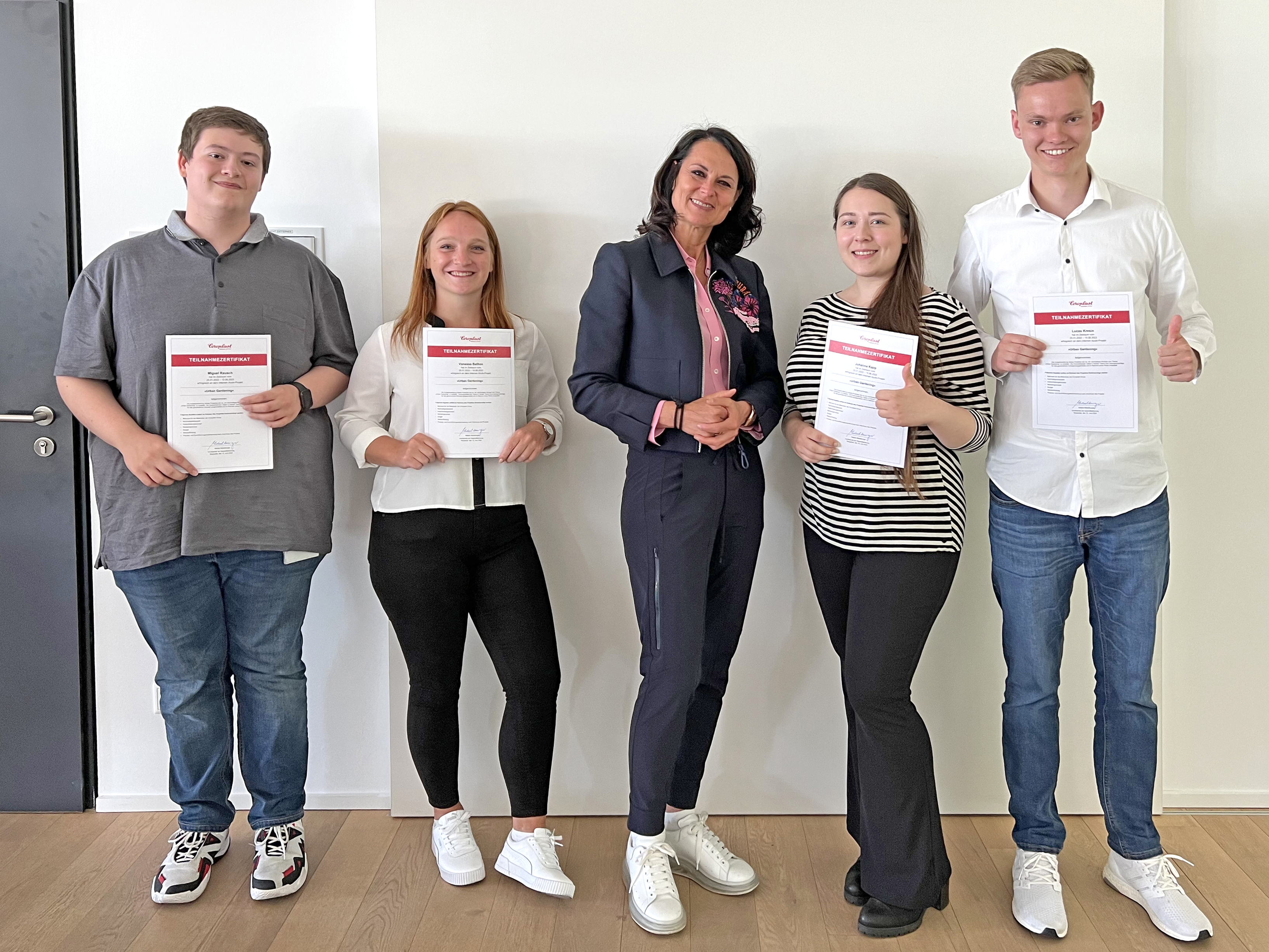
Independent teamwork with clear goals
The three interdisciplinary trainee teams started the challenge with a budget of 4,500 euros, six months of time and a lot of enthusiasm. The challenging task was to design sustainable concepts for urban gardening and to implement them in practice.
On the way to the goal, independent teamwork, well thought-out budget management and realistic time planning were required in parallel to the everyday trainee tasks. The teams were able to count on the help of four experienced mentors for all technical, content-related and organizational issues.
Despite all the creative freedom, four aspects had to be kept in mind:
- What benefits and added value does the project bring to the employees of the Coroplast Group?
- What does the implementation of the concept cost?
- Where can the project be implemented?
- How and at what cost can the project be operated and maintained sustainably?
A pitch decides
However, successful planning and implementation of the task is only half the battle in this competition. At the end, the teams were allowed to "pitch" their results to a jury. The presentation included short videos explaining the concept, effectively staging it and documenting the course of the project.
Despite clear evaluation criteria, the jury was ultimately faced with a difficult decision, as they were completely enthusiastic about all three projects and the pitches. In the end, there was a winner and happy faces - for everyone involved.
And these are the three realized concepts of our fantastic trainee teams, which we would like to continue and expand:
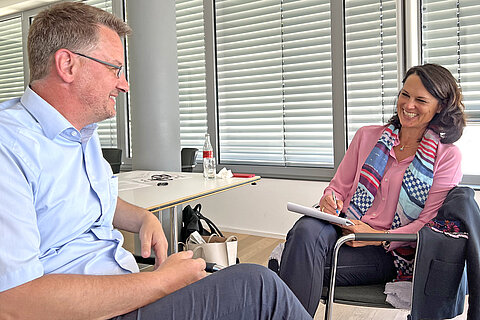
I was very excited by the ideas and the quality of the presentations. All three teams developed concepts at a high level and, in particular, did great teamwork.
Third place Project „vegetable patch“
The team, consisting of two industrial clerks, an IT specialist and a dual student of International Management, designed a cleverly structured raised bed from old pallets. This upcycling project will provide our company restaurant with fresh herbs and vegetables. The prototype vegetable patch, which has already been planted, will be expanded to include additional specimens if necessary. We are delighted about the additional greenery on our company premises and the delicious, healthy dishes!
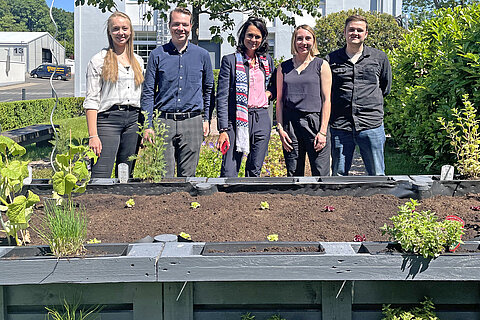
Second place Project „Wall greening“
The crew of three industrial clerks and a dual student of business informatics had set their sights on bringing moss into our buildings as wall greening. Moss is an ideal material for this project because it is decorative and its structure offers a wide range of design options. In addition to their aesthetic strengths, the plants regulate the room climate and absorb sound. On top of that, moss walls do not require any maintenance and do not need to be watered. So these natural and durable installations are a real asset to our meeting rooms or offices!
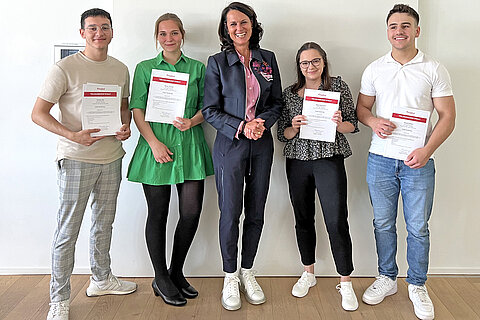
It was great fun to mentor our young colleagues and to experience their positive spirit and creativity! Dear trainees, you have left a great "footprint" on our factory premises!
First place Project „Bee colonies“
Two industrial clerks, a dual student of international management and an IT specialist finally took the overall victory. The concept of establishing two bee colonies and producing honey convinced the jury. After all, bees are important for a functioning ecosystem, the harvested honey can be purchased for a small donation in our company restaurant and, last but not least, the majority of the proceeds go to the Wuppertal children's hospice.
The two colonies, each with around 40,000 bees, have found their new home on the roof of a production building. Professional care was also thought of: one of our shipping employees, who works as a beekeeper in his spare time, agreed to support our trainees in word and deed.
Congratulations to all teams! You have more than earned your prizes in the form of exciting event vouchers. We are excited to see how the projects develop - and are already looking forward to the next trainee pitch.
